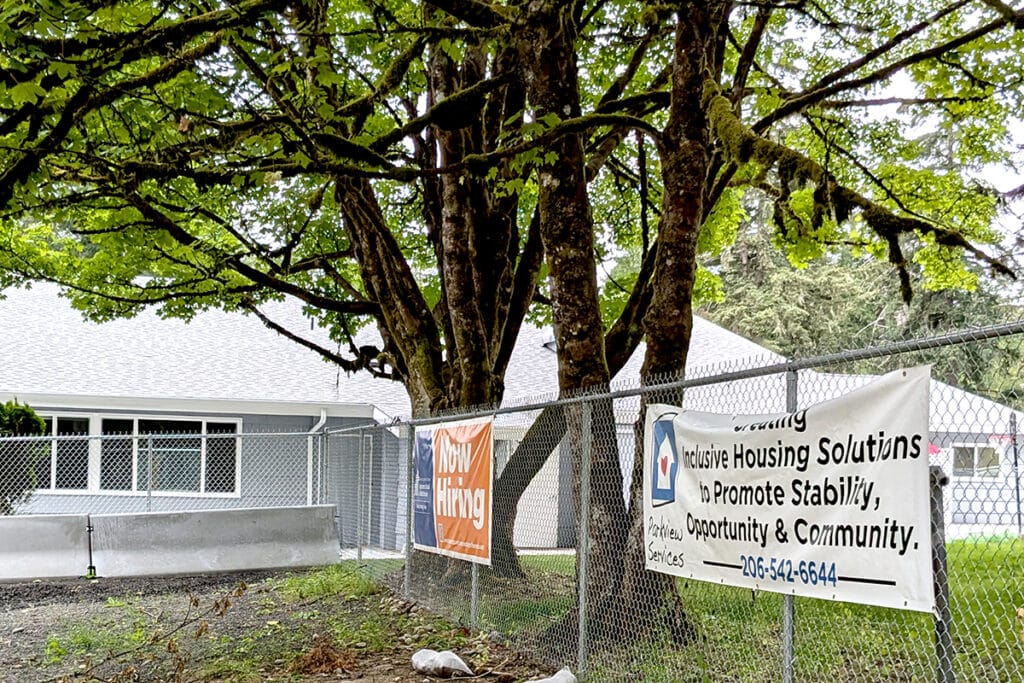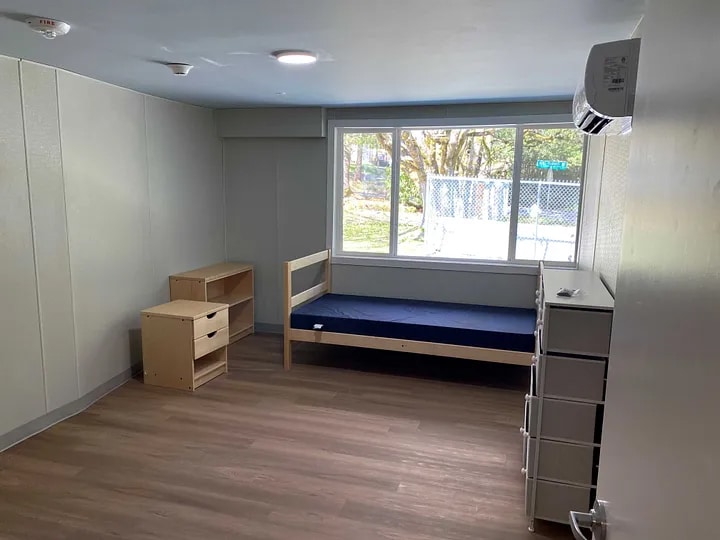Community Government Health & Wellness
A SAIF place for people struggling with intellectual and developmental disabilities
A short-term residential facility supporting people with intellectual and developmental disabilities from across Washington is expected to open near Gig Harbor in the coming months.
Health & Wellness Sponsor
Health and Wellness stories are made possible in part by Virginia Mason Franciscan Health, a proud sponsor of Gig Harbor Now.
The facility will help its clients avoid institutionalization and return to their home communities.
The facility, located along Highway 302 west of Wright Bliss Road, will provide crisis care and around-the-clock support for six adults with disabilities and complex behavioral health needs for up to 90 days. It’s called a Stabilization, Assessment, Intervention Facility.
The Developmental Disabilities Administration, a division of the Washington Department of Social and Health Services, will provide services at the permanent six-bed, 6,000 square-foot facility as part of the SAIF Program.
Legislators asked DSHS to establish a program to stabilize people who could no longer remain in their home communities back in 2019, said AnnMarie DeGrout, a DSHS program manager supporting state-operated living alternatives. The SAIF program was the result.
“We got a legislative request to develop a program that could assist with stabilizing folks that were experiencing crises in their community and — with those crises — were destabilizing their placement in that community,” she said. “SAIF has been doing a great job meeting those clients that are in crisis (and) stabilizing them so they can return to their community of choice.”

The SAIF facility located on Highway 302 north of the Key Peninsula. Photo by Conor Wilson
DeGrout said the Legislature made the request amid an increase in people experiencing crisis who needed additional support to remain in their communities. She said SAIF prevents clients’ condition from worsening and provides a midpoint to alleviate pressure on existing systems like emergency services, supportive living facilities, Residential Habilitation Centers or Western State, Washington’s largest psychiatric hospital.
After the legislative request, DDA began looking for a home for support the statewide crisis-care facility. They settled on Pierce County due to its central location and proximity to the I-5 corridor. They opened a temporary facility in Tacoma nearly two years ago, initially providing three beds.
The Gig Harbor facility replaces the one in Tacoma and held a soft opening earlier this year. The Developmental Disabilities Administration expects to receive final sign-offs soon, allowing it to officially open, said Derick Sleight, SAIF program administrator.
Parkview Services, a Lynnwood-based inclusive housing contractor, purchased the new property in partnership with DSHS and will serve as its landlord. Parkview bought the property, formerly home to the Rocky Bay Health Care Facility, for $1 million in September 2021, according to online Pierce County property records.
The facility will serve existing DDA clients who are 18 or older and require additional support to improve things like coping or communication skills, Sleight said. SAIF program staff will refer them to the facility after an initial visit and observation.

A room at the new Stabilization, Assessment, Intervention Facility near Gig Harbor. Photo courtesy DSHS
Clients will develop a list of up to three “habilitative goals” that staff will monitor during their stay, Sleight said. Those goals typically involve a skill around behaviors. Providers will aim to reduce the severity, frequency or duration of behaviors that make it difficult for the client to live in their current environment.
Patients can come from a variety of places prior to arriving at the SAIF building. They include private homes, group homes, hospitals or other state agencies. During their three months at the facility, each will have an individualized care plan and, at minimum, one person assigned to them at all hours of the day.
SAIF staff will also partner with any support the client already has in their own community to ensure a smooth transition when they are discharged, Sleight said. It’s a labor-intensive process that has thus far been successful at its temporary site to help clients reintegrate.
“It’s going to take a lot of work but this vision means a lot to every member of SAIF,” he said. “If we can get people back to their support in the community, back to the lives they want to live, to us that’s kind of the greatest reward.”


